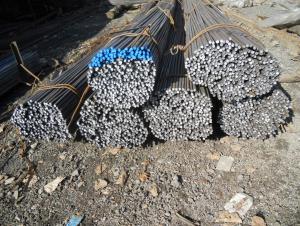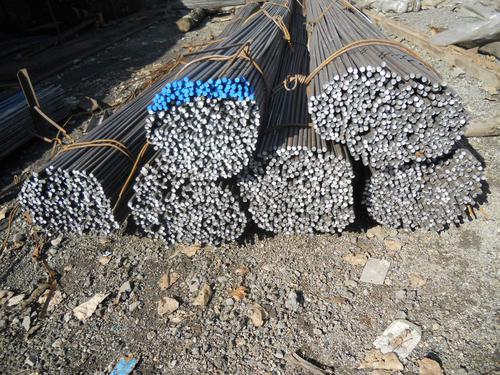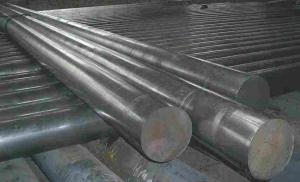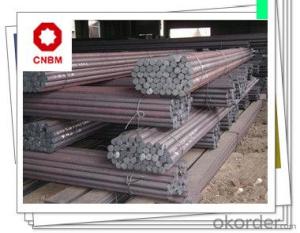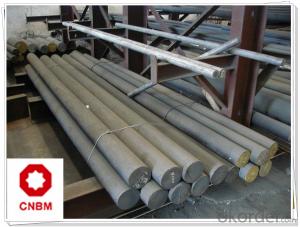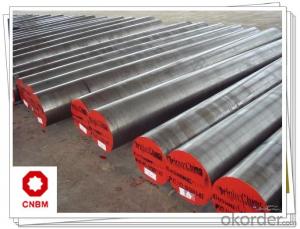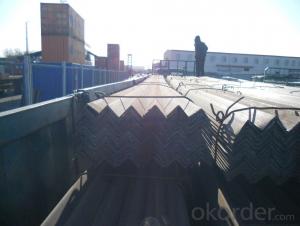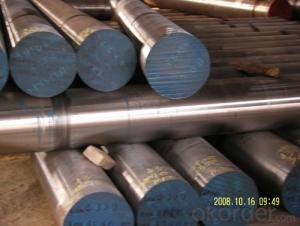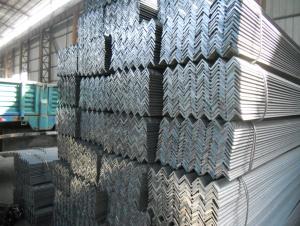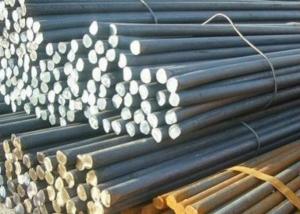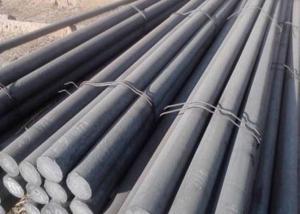Steel Round Bar-Standard GB
- Loading Port:
- China Main Port
- Payment Terms:
- TT OR LC
- Min Order Qty:
- -
- Supply Capability:
- -
OKorder Service Pledge
OKorder Financial Service
You Might Also Like
Specifications of Steel Round Bar:
1. Standard: GB
2. Grade: Q345
3. Invoicing on theoretical weight or actual weight as customer’s request
4. Shape: Round bar, solid bar of steel with circular section
5. Technique: Hot rolled
Size:
| Size (mm) | Section Area (cm2) | Mass (Kg/m) |
| 25 | 490.625 | 3.85 |
| 26 | 530.66 | 4.17 |
| 28 | 615.44 | 4.83 |
Packaging & Delivery of Steel Round Bar:
Packaging Detail: Standard seaworthy packing or as customer required; all goods are packed in bundle with steel strips and shipped by break bulk vessel or container
Delivery Detail: 45 days
Trade terms: FOB, CFR, CIF or as customer required
MOQ: 25 tons per specification; we can negotiate the quantity if the specification is normal or we have stock of one specification.
Weight: The price invoicing on theoretical weight basis or actual weight basis depends on customer’s request.
Shipment: The shipment of bulk break or container is depends on customer’s request.
Documents given: Full set (3/3) of original clean on board bill of lading; Original signed commercial invoice, in 3 originals and 3 copies; Original packing list in 3 originals and 3 copies; Policy of insurance; Certificate of origin and what the target market needs.
* If you would like to get our price, please inform us the size, standard/material and quantity. Thank you very much for your attention.
- Q: Are square steel, rectangular tube and angle steel shaped or light steel?
- Large steel: large steel, I-beam, channel steel, angle steel and flat steel are hot rolled, round bar, Fang Gang, six angle iron in addition to hot rolling, there are forging, cold drawn and so on.I-beam, channel and angle steel are widely used in industrial buildings and metal structures, such as factories, bridges, ships, agricultural machinery, vehicle manufacturing, transmission towers, transport machinery, often in conjunction with the use of. Flat steel is used as a bridge, a housing, a fence, a transmission ship, a vehicle, etc. on a construction site. Round steel and square steel are used for all kinds of machine parts, agricultural machinery parts, tools and so on.Medium type steel: medium type steel, medium, groove, corner, round, flat steel use, similar to large steel.Small steel: small steel, middle, round, square, flat steel processing and use similar to large steel, small diameter round steel is often used for building steel
- Q: Can steel round bars be used for making exhaust systems?
- Yes, steel round bars can be used for making exhaust systems. Steel is a popular material choice for exhaust systems due to its durability, heat resistance, and ability to withstand high temperatures and corrosive environments. Steel round bars can be used to fabricate the pipes, mufflers, and other components of an exhaust system. They can be easily welded and shaped into the desired form, allowing for customization and flexibility in design. Additionally, steel round bars can provide the necessary strength and structural integrity required for an efficient and long-lasting exhaust system.
- Q: Can steel round bars be hardened through heat treatment?
- Yes, steel round bars can be hardened through heat treatment. Heat treatment processes such as quenching and tempering can be used to change the microstructure of the steel, resulting in increased hardness and strength.
- Q: What is the maximum silicon content allowed for steel round bars?
- The maximum silicon content allowed for steel round bars can vary depending on the specific grade and application of the steel. However, in general, the maximum silicon content for most standard carbon and alloy steels used in round bars is typically around 0.35% to 0.45%. Exceeding this limit can lead to detrimental effects on the steel's mechanical properties, such as reduced toughness and increased brittleness. It is important to consult the relevant industry standards and specifications to determine the specific maximum silicon content allowed for a particular steel grade and intended use.
- Q: Can steel round bars be used for making gears?
- Yes, steel round bars can be used for making gears. Steel round bars are commonly used in gear manufacturing due to their high strength, durability, and excellent machinability. They can be easily formed and shaped into the desired gear design, making them an ideal choice for various applications requiring reliable and robust gear systems.
- Q: Can steel round bars be used for making furniture?
- Yes, steel round bars can be used for making furniture. Steel is a durable and sturdy material, which makes it suitable for creating various types of furniture such as tables, chairs, and shelves. The round bars can be shaped and welded to fit the desired design, providing a modern and industrial look to the furniture.
- Q: What are the advantages of using nickel-zinc alloy steel round bars?
- There are several advantages to using nickel-zinc alloy steel round bars. Firstly, they offer excellent corrosion resistance, making them ideal for applications in harsh environments or where exposure to moisture is a concern. Secondly, these round bars exhibit high strength and toughness, making them suitable for heavy-duty applications that require a reliable and durable material. Additionally, nickel-zinc alloy steel round bars have good heat resistance, allowing them to withstand elevated temperatures without significant deformation or loss of mechanical properties. Overall, these advantages make nickel-zinc alloy steel round bars a versatile and reliable choice for various industrial and construction applications.
- Q: Are steel round bars available in different shapes other than round?
- No, steel round bars are typically only available in round shapes. The term "round bar" refers specifically to a cylindrical shape with a circular cross section. However, there are other types of steel bars available in different shapes, such as square bars, flat bars, and hexagonal bars. These bars have specific applications and properties that make them suitable for different uses. So, while steel round bars are limited to round shapes, there are various other shapes of steel bars available in the market to cater to different requirements.
- Q: Can steel round bars be used for making electrical system components?
- Certainly! Steel round bars have the potential to be utilized in the production of electrical system components. Steel, being a versatile material with a wide range of applications across different industries, including electrical engineering, offers the possibility of being used in specific sections of an electrical system. While materials such as copper are commonly preferred for electrical components due to their superior electrical conductivity, steel can still be employed for certain parts of the system. Structural components, supports, enclosures, or mounting brackets for electrical devices are examples of uses for steel round bars. Furthermore, steel's durability, strength, and resistance to corrosion make it an appropriate option for electrical system components that require a sturdy construction or protection against environmental factors. However, it is important to acknowledge that steel is not as efficient a conductor of electricity as materials like copper or aluminum, meaning it may not be suitable for components that necessitate high electrical conductivity.
- Q: What is the cost of a steel round bar?
- The price of a steel round bar can fluctuate based on various elements, including its dimensions, quality, and the source from which it is obtained. Typically, the larger the diameter and length of the round bar, the more expensive it becomes. Moreover, the steel grade significantly influences the cost since different grades possess different levels of robustness and endurance. Furthermore, the supplier and location also influence the price due to factors such as transportation and market demand. To obtain a precise cost estimation, it is advisable to reach out to a nearby supplier or consult online metal marketplaces for up-to-date pricing information.
Send your message to us
Steel Round Bar-Standard GB
- Loading Port:
- China Main Port
- Payment Terms:
- TT OR LC
- Min Order Qty:
- -
- Supply Capability:
- -
OKorder Service Pledge
OKorder Financial Service
Similar products
Hot products
Hot Searches
Related keywords
